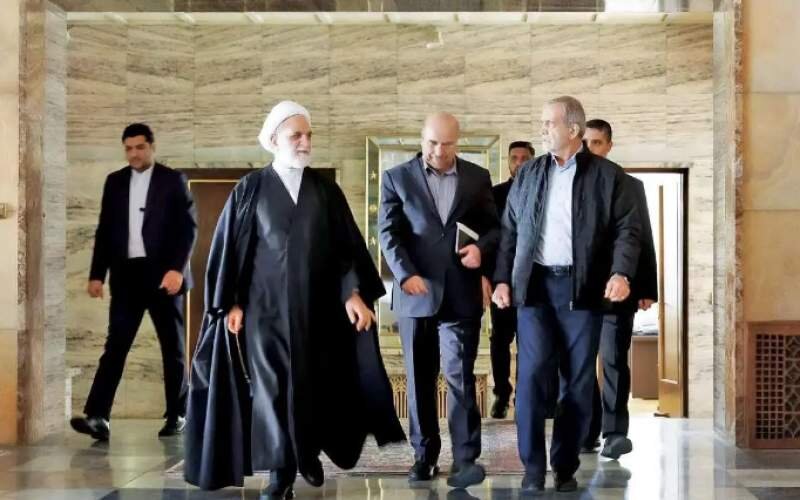7 things to know about Iran’s new Defense Council

TEHRAN – In a move to enhance strategic coordination and readiness, Iran's Supreme National Security Council (SNSC) has approved the establishment of a new Defense Council. Below are 7 key facts about the newly-established body.
What prompted the formation of the Defense Council?
The council was formed after Israel and the U.S. launched an unprecedented war against Iran that targeted the country’s nuclear, military and civilian infrastructure, lasting from June 13 to June 24. Analysts believe this council is a direct response to these escalations, designed to establish unified command for future conflicts, moving beyond coordination to decisive command in wartime.
What is the core mission of the Defense Council?
The primary mandate of the Defense Council is the centralized examination and development of defense strategies and plans, alongside enhancing the combat capabilities of Iran's Armed Forces. Its foundational purpose, as stated in the SNSC announcement, is to command any potential war and defend the nation's sovereignty against attack, operating under the umbrella of the SNSC.
Who founded the Defense Council and who presides over it?
The Defense Council was established by a decision of the SNSC, chaired by President Masoud Pezeshkian. The decision received the crucial approval of the Leader of the Islamic Revolution, Ayatollah Seyyed Ali Khamenei, as required by constitutional protocols. President Pezeshkian will serve as the head of the newly formed Defense Council.
Who are its members?
Although the Supreme National Security Council (SNSC) has not released an official roster, reports from Iranian media outlets indicate that its membership comprises the heads of the three branches of government, senior military commanders, and ministers responsible for national defense. The council reportedly includes the President, the Speaker of the Parliament, and the Head of the Judiciary. It also features two representatives appointed by the Leader of the Islamic Revolution, as well as the Minister of Intelligence and the Chief of Staff of the Armed Forces. Military leadership is represented by the commanders of the Islamic Revolution Guard Corps (IRGC) and the Army (Artesh). In addition, the commander of the Central Khatam al-Anbiya Headquarters is said to be a member.
What is its relationship to the existing Supreme National Security Council (SNSC)?
The Defense Council is a specialized sub-council formed by the SNSC, utilizing its constitutional authority under Article 176 to create subsidiary bodies like a Defense Council and a National Security Council. While the SNSC retains responsibility for overarching national security, political, and strategic matters, the Defense Council will focus specifically on military affairs and wartime command.
How does this new council differ from the historical Supreme Defense Council?
While some media outlets have drawn parallels to the Supreme Defense Council active during the 1980-1988 Iran-Iraq War, analysts emphasize crucial distinctions. The previous council, formed before the SNSC existed, acted as a wartime command center and was dissolved after the 1989 constitutional revision. In contrast, the new Defense Council is explicitly established as a subsidiary body of the SNSC under Article 176. Its role is specialized and operational within the broader strategic framework set by the SNSC and the Leader of the Islamic Revolution.
Does this council undermine the role of Parliament?
Some critics, like MP Hamid Resaee, expressed concern that such councils might marginalize the legislature. However, proponents counter this argument decisively. Foreign policy analyst Ali Bigdeli clarified: "The issue of forming a Defense Council is neither strange nor new. When the country is in danger of a ceasefire violation and the start of a new war, institutions outside the subject of war usually do not have any special interference anywhere in the world. All countries in situations similar to ours stop all ancillary activities and focus on the situation." He emphasized that such critical defense decisions are made under the Leader of the Islamic Revolution's supervision, and Parliament's role in these specific operational military matters is inherently limited, especially during imminent threats requiring rapid, classified, and expert decisions.
Leave a Comment